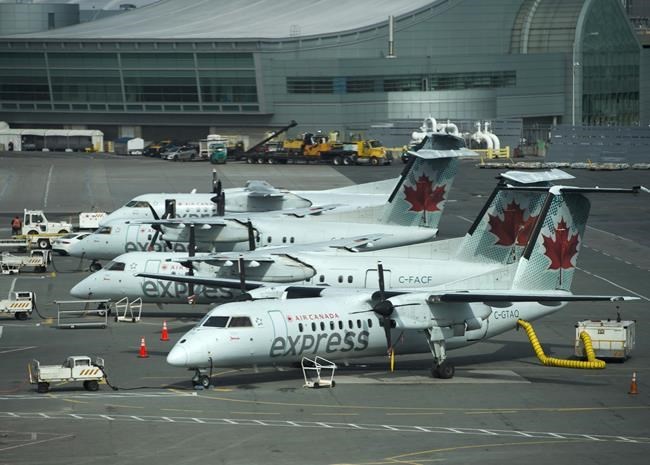OTTAWA — The Royal Canadian Air Force is hoping to address a critical shortage of experienced pilots by scooping up some of the hundreds of commercial pilots whose jobs have been negatively affected by the COVID-19 crisis.
Commercial carriers across Canada furloughed hundreds of pilots, technicians and other staff last month as the airline industry struggled with plummeting demand due to travel restrictions and other fallout from the global pandemic.
Airlines such as Air Canada and WestJet have since been able to rehire the majority of their employees with help from federal wage subsidies, but there remains great uncertainty around when staff will actually return to work as most flights remain grounded.
That is where the military wants to make the most of a bad situation.
Even before COVID-19, the Air Force had been reaching out to former military pilots who had left for commercial gigs in recent years in the hopes of enticing them back into uniform as it faced a shortage of more than 200 experienced aviators.
The shortfall, which saw Air Force commanders walking a delicate line between keeping enough seasoned aviators available to train new recruits and lead missions in the air, coincided with significant growth in the global commercial airline sector.
Now, at a time when the commercial airline industry is facing uncertainty and disarray, the Air Force hopes that by highlighting the stability that comes with a career in the military, more former military pilots will decide to re-enrol.
The decision by airlines to hire staff doesn't help that effort, but Air Force spokesman Lt.-Col. Steve Neta said early indications have been encouraging as 26 former pilots have reached out in recent weeks to see about re-enrolling. Several have started formal applications.
"It's certainly encouraging to see former skilled RCAF members get in contact with our Air Force Intake and Liaison Team," Neta said. "Each experienced person that we can bring back will add value as we continue our efforts to strengthen the depth of experience across the RCAF."
The federal auditor general first reported in late 2018 that the military didn't have enough pilots and mechanics to fly and maintain Canada's CF-18 fighter jets. The Air Force at the time was short 275 pilots and needed more mechanics, sensor operators and other trained personnel.
Efforts had since been made to better retain experienced personnel, particularly by better supporting military families, tapping reservists to help with basic maintenance work and adjusting some positions to keep pilots in the air rather than flying desks.
The military has also been working on a contract for a new training program that will let the Air Force increase the number of new pilots trained in a given year when necessary. The current program allows only a fixed number.
It will be several months before the Air Force will see actual re-enrolments from the latest efforts, said Neta, as those interested must go through a screening process to ensure they still meet the required standards to serve.
"Nonetheless, the RCAF is committed to facilitating this process to further strengthen our numbers of skilled and experienced personnel."
This report by The Canadian Press was first published April 15, 2020.
Lee Berthiaume, The Canadian Press




